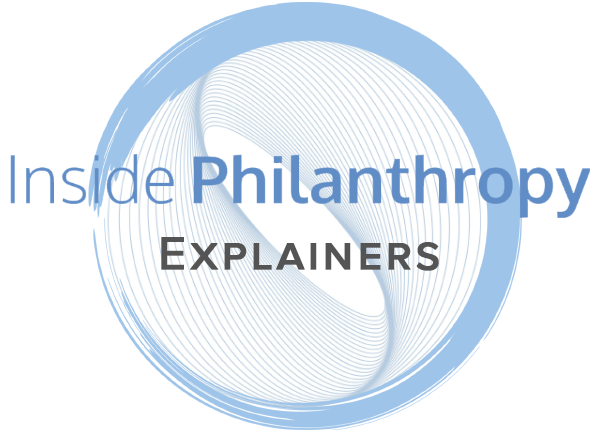IP Explainer: What Is Evaluation?
/What’s the difference between a grant and a gift—and how do you get one? How do foundations work? What’s all this about 501(c)(3)s versus (c)(4)s? These are just a few of the questions that might be running through your mind if you’re new to the world of philanthropy and fundraising.
It doesn’t need to be so confusing.
Inside Philanthropy has produced a series of brief “explainers” to introduce you to the basics of philanthropy, defining key terms and elucidating important debates to help you find your way through all the jargon to become a more informed, more effective fundraiser.
Today, we explain how grantmakers judge the impact of their funding.
What is Evaluation?
A way to determine the value or effectiveness of a project or program.
In philanthropy and the nonprofit sector, evaluation can be highly formalized.
How do funders know if they’re making an impact? Is their funding producing results? Making the world better, according to whatever vision of a “better world” they happen to hold? Could they—or the nonprofits they’re funding—improve? How’s a funder to know? For many, the answer is evaluation.
Many foundations like to see evaluations of nonprofits or projects they fund. Many staffed foundations also invest in evaluations of their own work as funders, for example, tracking and analyzing the results of a particular grantmaking strategy.
Evaluation can take different forms, but it’s often a formal process involving data collection and analysis. Sometimes, evaluation is done by professional evaluators (who may hail from philanthropy-serving organizations). Sometimes, a nonprofit is asked to evaluate its own work.
There are many frameworks for evaluation, and it’s a fairly jargon-heavy corner of the universe, where industry publications highlight the differences between terms like “evaluation” and “impact measurement.” While different funders use different evaluation methods, there tend to be predominating trends, like the “logic model” (which looks at inputs, activities, outputs and outcomes). As you may have guessed, formal evaluation became increasingly popular in philanthropy along with the rise of evidence-based, data-driven “strategic philanthropy.”
But the field is evolving, with a growing number of voices remarking that many evaluations fail to capture the complexity of the issues, or what “success” might really look like.
I’m a fundraiser. What does all this mean for me?
You’ll want to keep track of whether your funders require evaluations—and if so, what kind, what’s the process, and (crucially) when are they due?
You may also want to learn about how your organization has evaluated its programs or been evaluated in the past, and any current or future evaluation plans. Depending on your role and the foundations you’re working with, you may be asked to participate in evaluations or to write about them in grant applications or grant reports.









